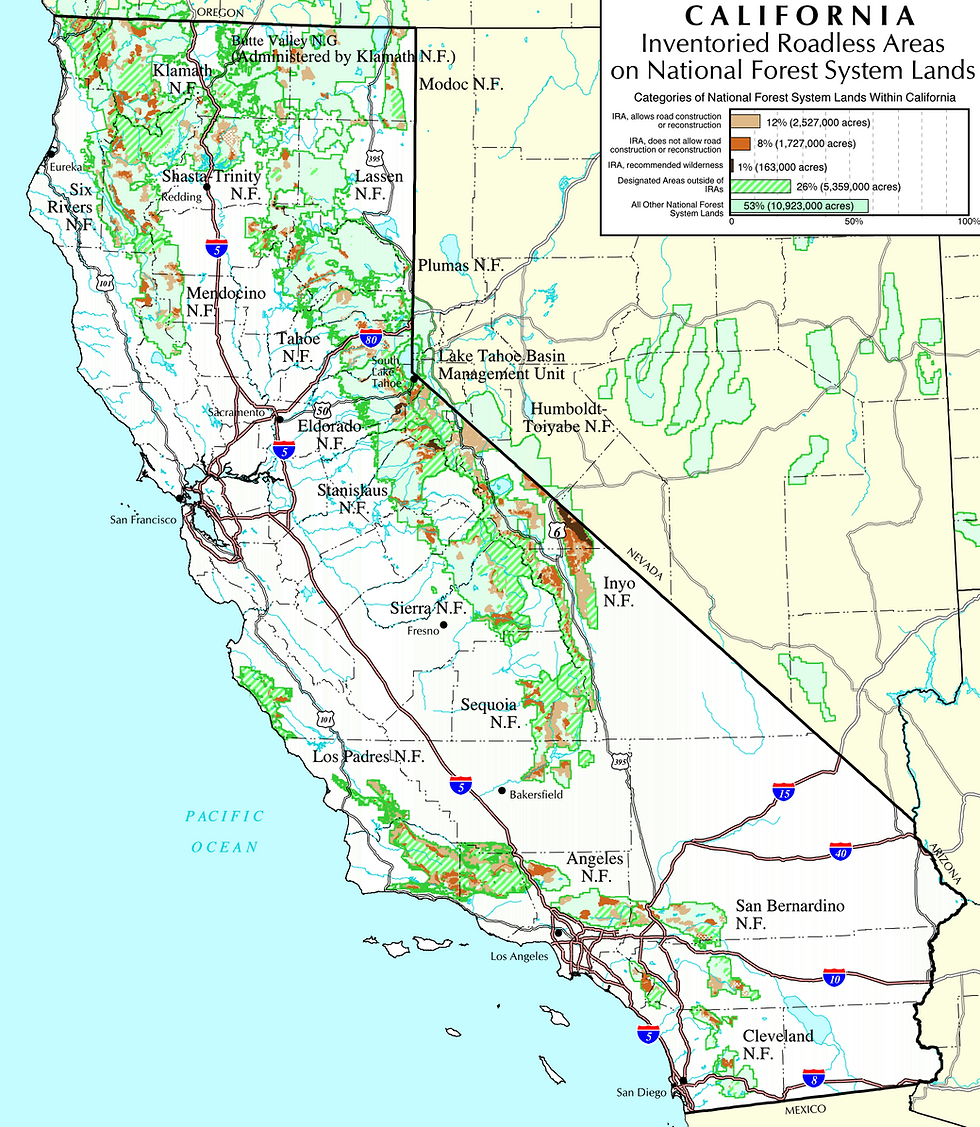Contrasting Federal Legislation Shows How (and How Not) to Deal with Fire
- Sep 22, 2020
- 2 min read

Red Salmon Complex, July 27. Photo courtesy of Inciweb.
California federal legislators have offered dueling bills to respond to the recent large fires that have gripped the West. In one corner stands Senator Dianne Feinstein and her bill S. 4431; in the other are Sen. Kalama Harris and the Northcoast’s own Rep. Huffman, who have brought forward S. 2882 and its House companion, H.R. 5091. To be clear who we are rooting for: EPIC has joined our friends at Earthjustice, Center for Biological Diversity, Natural Resources Defense Council, National Parks Conservation Association, Sierra Club, The League of Conservation Voters, The Wilderness Society, and Western Environmental Law Center in opposing Senate Bill 4431. EPIC also endorses Sen. Harris’ and Rep. Huffman’s bills.
The two sets of legislation represent two competing schools of thought on addressing wildfires. Sen. Feinstein’s bill would weaken environmental laws to encourage more backcountry “fuels” treatments under the theory that by removing trees and other vegetation, we can influence fire behavior. The problem with Sen. Feinstein’s bill is that backcountry vegetation projects are enormously costly, require repeat treatments (because trees grow back), are ecologically impactful, and are not terribly effective at keeping people safe. Most large and high-intensity fires are climate and weather driven events, where a hotter, drier, and longer fire season (thanks climate change) along with high winds work together to create “megafires.” Sen. Feinstein’s bill, while perhaps a psychological salve as it feels like we are doing something, actually would do little to keep communities safe because the bill cannot fundamentally uncouple this relationship. (But it should come as no surprise that while the environmental community has overwhelmingly opposed Sen. Feinstein’s legislation, it finds many supporters in the timber industry, who are only too happy to take “fuels” off the government’s hands for cheap.)
By contrast, the Sen. Harris/Rep. Huffman legislation (S. 2882/H.R. 5091) would provide funding, through grants to local and tribal governments, for community wildfire preparation, the development of critical infrastructure, and the hardening of structures and the creation of defensible space. These actions are the most effective measures to keep people and property safe from wildlands fire. It allows for a diversity of potential responses, as the program would pass money along to local governments to tailor projects to fit the needs of their communities.





Comments